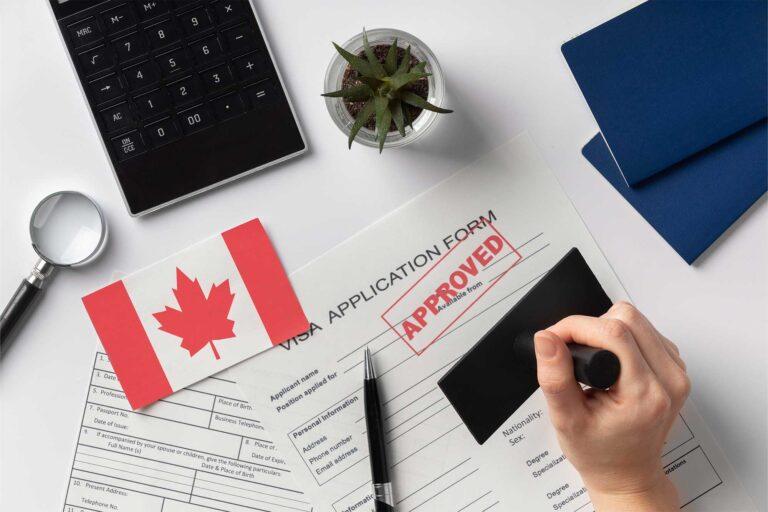How to Handle a Procedural Fairness Letter from IRCC
When you’re navigating the Canadian immigration process, few things are more stressful than receiving a procedural fairness letter (PFL). It’s the kind of notice that can make any applicant anxious — and for good reason. If you’ve received a procedural fairness letter from Immigration, Refugees and Citizenship Canada (IRCC), it means your application could be refused. But here’s the good news: this isn’t a final decision. You still have an opportunity to respond and correct the issue.
At Akrami & Associates, we’ve worked with countless clients who’ve faced this situation. With the right guidance and a timely, well-prepared response, your application may still be saved.
What Is a Procedural Fairness Letter?
A procedural fairness letter, often referred to as a PFL, is a formal notice from IRCC that they’ve identified a problem with your immigration application. Rather than rejecting it outright, IRCC gives you the chance to explain, clarify, or provide additional evidence before they make a final decision. It’s a pivotal moment — your case isn’t denied yet, but how you respond can determine the outcome.
Common Reasons for Receiving a Procedural Fairness Letter
Receiving a Procedural Fairness Letter (PFL) from IRCC can feel like a gut punch — especially after putting so much time and energy into your immigration application. But don’t panic. A PFL doesn’t mean your case is over. In fact, it means you’re being given an opportunity to respond before a decision is made. The key? Understanding why it was issued — and responding with strategy, precision, and supporting evidence.
Here are the most common reasons IRCC might hit pause on your application and issue a PFL:
- Suspected Misrepresentation
Let’s be clear: IRCC treats accuracy as non-negotiable. If the officer believes you’ve submitted false, misleading, or incomplete information — even unintentionally — that can trigger a misrepresentation finding. And the consequences are serious: a 5-year ban from reapplying, loss of status, or outright refusal.
This can involve:
- Inconsistent dates on your resume
- Undisclosed family members or past refusals
- Forged documents or inaccurate educational credentials
You must respond with honest clarification and verifiable evidence — quickly.
- Medical Inadmissibility Concerns
If IRCC believes your health condition might cause an excessive demand on Canada’s health or social services, they may issue a Procedural Fairness Letter (PFL) regarding your admissibility. Conditions like HIV, kidney disease, or certain developmental disorders often raise red flags.
But medical inadmissibility can often be overcome by:
- Presenting a personalized medical plan
- Showing that your condition won’t exceed the “excessive demand threshold”
- Submitting expert assessments and financial support plans
If your background check reveals a past criminal conviction, even something minor or from many years ago, IRCC may question your admissibility under section 36 of the Immigration and Refugee Protection Act (IRPA). This includes DUIs, theft, assault, and more.
This is where Criminal Rehabilitation, Record Suspensions, or Legal Opinion Letters become crucial. You must explain the context, show remorse, and prove you’ve been rehabilitated.
- Employment History Verification Issues
IRCC scrutinizes work history carefully — especially for Express Entry, work permits, or LMIA-based applications. If your employment letters look inconsistent, unverified, or fabricated, you could receive a PFL questioning the legitimacy of your claimed work experience.
Common red flags include:
- No business website or contact info for the employer
- Job duties that don’t match the NOC code
- Missing pay stubs, tax documents, or company records
You’ll need to provide supporting documents, third-party verification, and possibly an affidavit to salvage your case.
- Security or Immigration Violations
Sometimes, IRCC flags issues related to past immigration history, overstays, misused visas, or concerns over security or public safety. This can include:
- Prior deportation from another country
- Visa refusals you didn’t disclose
- Suspicion of human rights violations or organized crime ties
While these cases are rare, they are taken very seriously and require legal precision in your response.
Bottom Line?
A Procedural Fairness Letter (PFL) is not a rejection — it’s your last chance to fix or explain a potential deal-breaker. The stakes couldn’t be higher, and how you respond determines whether your immigration future stays alive or ends right there.
Need help crafting a bulletproof response to a Procedural Fairness Letter (PFL)? At Akrami & Associates Immigration Law Firm, we know exactly what officers look for — and how to turn red flags into second chances.
Because in immigration, silence is not an option — and strategy is everything.

Step-by-Step Guide to Responding to a Procedural Fairness Letter
Step 1: Read the Letter Carefully
Review the procedural fairness letter thoroughly. Identify exactly what IRCC is questioning. Make note of the response deadline, which usually falls within 7 to 30 days. Time is critical in responding to PFLs.
Step 2: Gather Supporting Evidence
You need to provide strong documentation that directly addresses IRCC’s concerns. Examples include:
- For misrepresentation: Submit corrected information, letters of explanation, reference letters, and supporting proof to clarify discrepancies.
- For medical inadmissibility: Provide recent medical assessments, letters from specialists, or evidence of private health insurance coverage.
- For criminal inadmissibility: Include police clearance certificates, court documentation, and any proof of rehabilitation or reform.
- For employment issues: Submit employment contracts, pay stubs, and letters from past employers verifying your work history.
Step 3: Write a Clear and Professional Response Letter
The tone should be factual and respectful. Avoid emotional appeals or defensive language. Focus on explaining any inconsistencies, provide clarifications, and supply verifiable evidence. If appropriate, acknowledge the error and offer an apology, but always aim to resolve the concern with documented proof.
Why Responding Properly to a Procedural Fairness Letter Matters
A Procedural Fairness Letter (PFL) can feel like the beginning of the end — but it’s actually your chance to set things right. If ignored or poorly handled, it can lead to refusal of your application or long-term inadmissibility to Canada.
At Akrami & Associates, we understand how complex and overwhelming these situations can be. Our experienced team is ready to guide you through your response and ensure every document and statement strengthens your case. When time is limited and your future is on the line, professional help can make the difference.
Immigration Pathways Where Procedural Fairness Letters Are Common
Procedural fairness letters can appear across a wide range of immigration applications, including:
- Temporary Resident Permits (TRP) – especially for those overcoming inadmissibility due to criminal records.
- Humanitarian and Compassionate (H&C) Applications – where detailed personal histories are required and heavily scrutinized.
- Permanent Residency through Express Entry or Provincial Nominee Programs (PNP) – where documentation errors or misrepresented work history may be flagged.
- Study Permit Applications – especially when proof of funds or intent to return home is questioned.
- Sponsorship Applications (Spousal or Family Class) – particularly if there are concerns about the genuineness of the relationship or prior immigration violations.
If you’re currently navigating one of these immigration pathways and receive a Procedural Fairness Letter (PFL), don’t delay. The opportunity to save your application is still within reach — but timing and accuracy are everything.
How Akrami & Associates Can Help
When you receive a procedural fairness letter, the quality of your response matters just as much as the timing. At Akrami & Associates, we specialize in helping clients draft compelling, well-documented responses that directly address IRCC’s concerns. We take the time to analyze your case, identify the weak points, and build a strong, clear, and professional reply that improves your chances of approval.
Our team can assist you with:
- Reviewing the Procedural Fairness Letter (PFL) and identifying key concerns
- Helping you gather and format proper supporting documentation
- Drafting a persuasive and accurate response letter tailored to your case
- Offering strategic guidance to avoid long-term immigration consequences
We know that no two cases are alike. That’s why we offer personalized support and legal insight to make sure you’re giving IRCC exactly what they need — and nothing they can misinterpret. Book a Consultation with Us Today!
Latest Immigrations News

December 5, 2025
THE ULTIMATE GUIDE TO HUMANITARIAN & COMPASSIONATE (H&C) APPLICATIONS IN CANADA
THE ULTIMATE GUIDE TO HUMANITARIAN & COMPASSIONATE (H&C) APPLICATIONS IN CANADA Understanding When, Why, and How to Apply for Permanent Residence on Humanitarian Grounds What Is an H&C Application? A Humanitarian and Compassionate (H&C) application is a last-resort pathway for individuals who are in Canada and do not [...]

September 11, 2025
Canada Super Visa: Step-by-Step Guide for Parents and Grandparents
For many Canadian citizens and permanent residents, bringing parents or grandparents to Canada for extended visits is more than just a wish, it’s a heartfelt need. While most people first consider the traditional visitor visa, there is another option designed specifically for family reunification: Super Visa applications. [...]

August 23, 2025
Intra-Company Transfer (ICT) Work Permit, Your Complete Guide to Working in Canada
For multinational companies, moving key talent across borders is often essential for growth and operational success. The Intra-Company Transfer (ICT) Work Permit provides a streamlined pathway to bring experienced employees to Canada without the time-consuming Labour Market Impact Assessment (LMIA) process. For foreign professionals, it’s more than [...]

Book a Conslutation
One of our Representatives will
assist you with your matter. Book Now!
Click here

Call us for
more Information
+1-416-477-2545
Toll Free: 1-877-820-7121
Click here

Write Us (Online Form)
Complete our form and one of our
Representatives will contact you.
Click here
Subscribe To Our Newsletter





